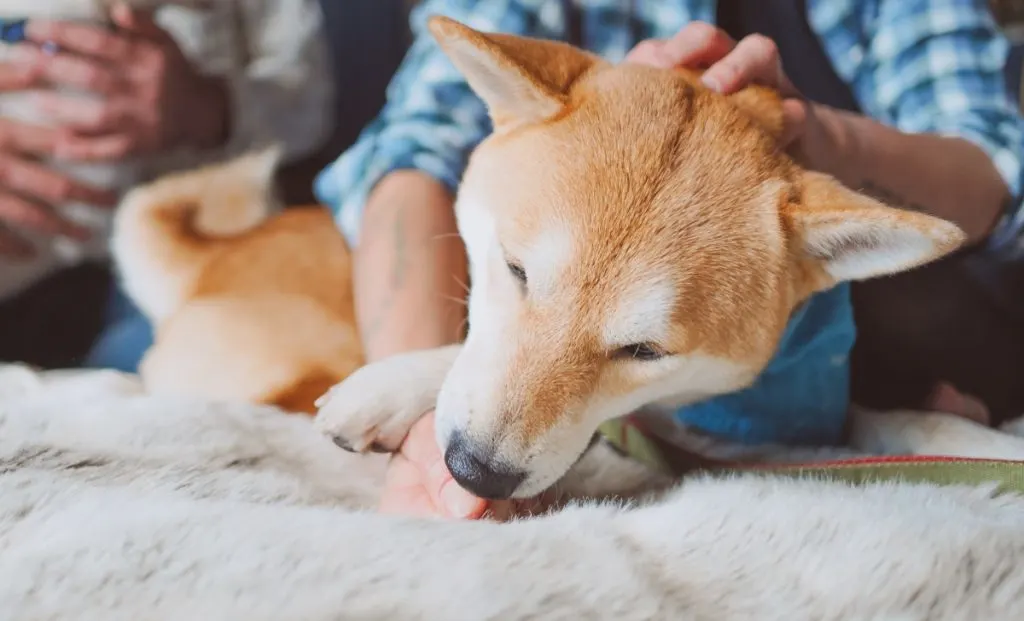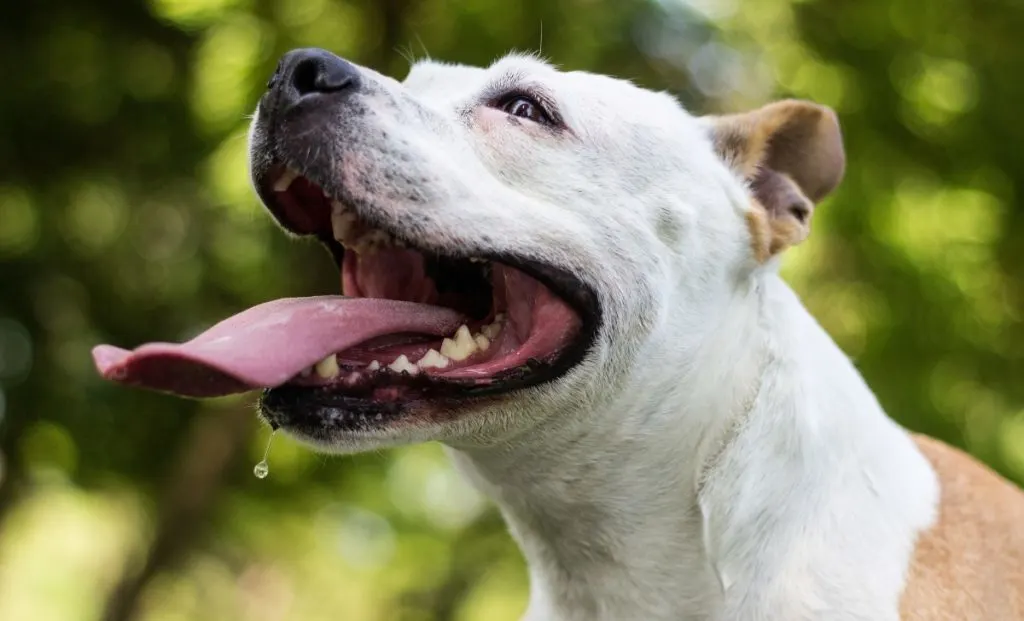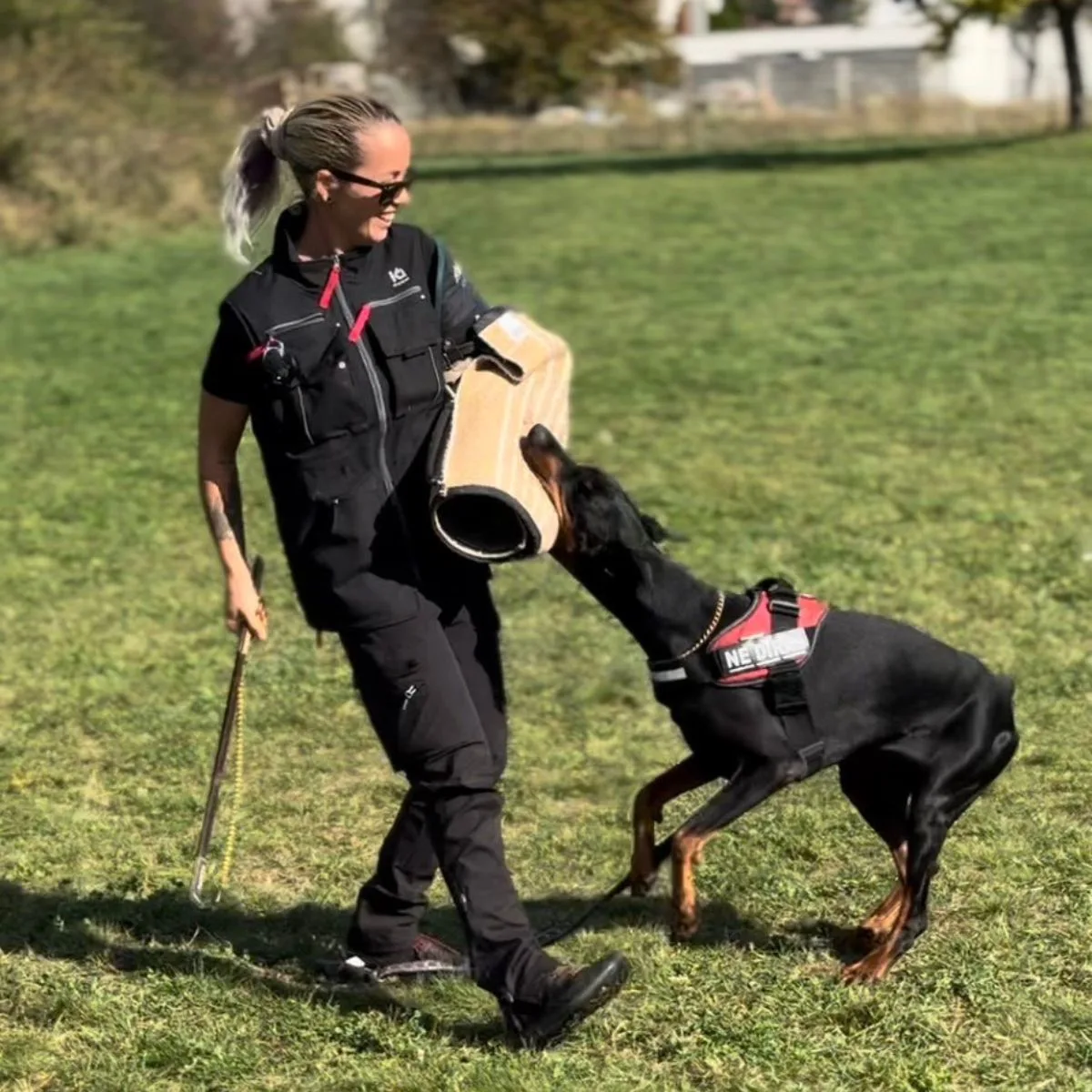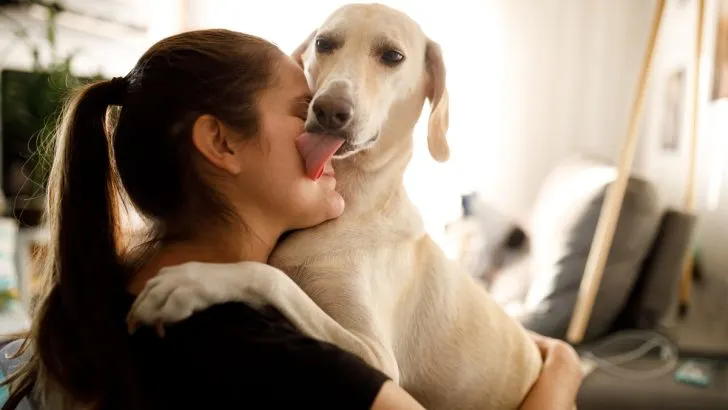If you are a dog parent, many questions about your pup during your life together pop into your head. I am sure one of them is why do dogs lick your wounds.
It definitely happened to all of us dog parents – if you by some chance get some wound on your skin, the next thing you feel after the pain is your dog licking that cut. Don’t worry, though; your dog isn’t some weirdo doing some strange stuff no other dog in the world is doing.
The need to care for a wound is an instinctive behavior for most animals and people alike. If you think about it, it does not take much training to teach a kid that an open wound needs attention.
Most children will immediately shove their own wounds (injured hand or arm) in their mouth right after the injury occurs. Most mammals, such as primates, dogs, cats, etc., do this.
So many dogs try to clean a fresh wound by wound licking. Some pups lick more intensely than others, which can cause further damage to the wounds. However, other pups just clean the wound and continue with their activities.
Even though it is an instinctive behavior for our canines the degree to which they approach the task varies greatly.
Why Do Dogs Lick Your Wounds

Wild animals and dogs alike know that when they get hurt, the wound needs to be soothed because it hurts. When their owner gets hurt, dogs will automatically try to take care of the pain and soothe their favorite human.
Your dog considers you as a part of their pack. For dogs their pack is their family, meaning they have a natural desire to take responsibility for your cuts and wounds and take care of you.
Simply put, it’s an instinctive behavior for your pup. Just like kicking grass after they poop or sleeping with their bum facing you. But that doesn’t mean you should allow it, dogs eating poop is instinctive as well, but it’s something we stop right away.
Benefits Of Canine Saliva
In our human culture, we believe that allowing dogs the act of licking wounds will help them heal and that it has antibacterial properties. This actually started in ancient Egypt, and the belief about the healing properties continued through Grecian times and is carried to the so-called common folk culture.
Is there any science behind this statement to support dogs licking human wounds? Well, yes and no. Human saliva and dog saliva contain some specific ingredients that can help heal wounds. If we talk about the wounds in our mouth, you know they heal faster than elsewhere in the body.
There was a study conducted at the University of Amsterdam by Menno Oudhoff. (1) He found out that saliva contains proteins named histatins, those proteins have the ability to ward off infections. This protein also prompts cells from the surface of the skin to aid in closing the wound quickly – all of these are good things to promote healing.
We have a pharmacologist from the London School of Medicine and Dentistry who found that the nitrite in the saliva breaks down to nitric oxide while in contact with the skin. (2) That helps protect wounds and cuts from infections.
While the researchers at the University of Florida found a protein called nerve growth factor in saliva (3) that also speeds up the healing process of the cuts and wounds.
Gentle licking of wounds helps remove debris and dirt that might slow the healing and cause infection. The mechanical actions of the tongue loosen the foreign matter, which sticks to the saliva and is removed from the wound.
So, as we can conclude, wound licking has some benefits. However, we can also find some minuses, such as a possible infection and promoting bacterial growth.
Can Dog Saliva Cause Problems

As much as it can help, dog saliva can also infect wounds. We can find a number of bacteria in our dog’s mouths that can cause infections in people; some of them can be pretty severe.
For a practical example, let’s talk about the bacteria Pasteurella that grows in areas without air, like deep wounds and cuts. When Pastuerella is introduced to a wound or a cut, the infection can result in amputations, and in some cases, it is even life-threatening.
A few severe cases of complications have been reported, like a woman with a small burn that was licked by her pup in hopes of wound healing. She lost all her fingers and toes, as well as her leg, to the infection that resulted.
There is another case of a man who developed an acute kidney infection. The underlying cause was an infection his pup introduced into his hand wound. We even have an example of a man who developed meningitis after his dog licked his ear while he was recovering from a perforated eardrum.
We do have many good compounds that we can find in the saliva that help heal wounds. However, there are significant potential complications to allowing your pup to clean and lick your cuts and wounds.
How To Stop My Dog From Licking Wounds
Usually, the best way to stop the occasional lick from your dog is to care for your wounds and cuts yourself. If you have a wound, the good idea is to clean the affected area immediately and cover it to prevent excessive licking from your pup.
However, seek medical attention if you have a deep cut or a significant wound. Most dogs won’t consider wound licking once disinfected, cleaned, and covered. The specific smell of a fresh wound and blood are the major attractions for our dogs. Just like the smell of poop attracts dogs to roll in it.
As adorable as it might seem that your furry family members want to help care for their humans while they are hurt, they can cause much more damage than good. Try to avoid them licking your cuts and wounds.
Our pups can even potentially cause severe damage to their own wounds. That’s why we have the cone of shame or the cone collar that our dogs wear around their neck after injury.
Every veterinarian has had the experience of dog wounds severely infected and traumatized from a dog licking their own wounds.
The next time you get a minor cut or wound, the best advice is to let a qualified human take care of it and let your pup only be moral support during that time.
Final Thoughts
So, while there are some benefits of dogs saliva, it is much better to treat your wounds and cuts with modern medicine.
Unfortunately, permitting and encouraging your pup to lick your wounds or cuts can result in a dangerous infection. Among many other potential dangers, pups can carry the bacteria called capnocytophaga.
In people that have compromised immune systems, this bacteria can lead to terrible health consequences.
Also, important information; pups that have periodontal diseases might transfer the oral bacteria from their disease straight into your bloodstream (depending on the state of your wound or cut).
The good news is that there is an effective and easy prevention strategy: make your dog stop licking your wounds.
To go even further, you can train your dog not to lick you (and others) at all. That means they shouldn’t use their inherited behaviors to show affection, soothe hurt, or taste your skin.
It is always better to be safe than sorry in the long run.
References:
- Oudhoff, Menno J., et al. “Histatins Are the Major Wound-Closure Stimulating Factors in Human Saliva as Identified in a Cell Culture Assay.” The FASEB Journal, vol. 22, no. 11, Nov. 2008, pp. 3805–3812, https://doi.org/10.1096/fj.08-112003. Accessed 31 Mar. 2024.
- Marich, John. “Department of Surgery.” Froemkelab.med.nyu.edu, 12 Apr. 2019, froemkelab.med.nyu.edu/surgery/content?ChunkIID=157011. Accessed 31. Mar. 2024.
- Tivadar Zelles, et al. “Concise Review: Saliva and Growth Factors: The Fountain of Youth Resides in Us All.” Journal of Medicine, vol. 74, no. 12, 1 Dec. 1995, pp. 1826–1832, https://doi.org/10.1177/00220345950740120301. Accessed 31 Mar. 2024

Nandina has been a lifelong dog owner and enthusiast. She shared her home with multiple breeds, including Giant Schnauzers, Cane Corsos, and Huskies. Currently, she is raising a three-year-old rescue and a working-line German Shepherd puppy.
Actively engaged in IGP dog sports for two years, Nandina is a certified instructor for basic obedience and socialization. She works as a trainer in her local dog sports club, and in her spare time, she handicrafts biothane gear for dogs.
